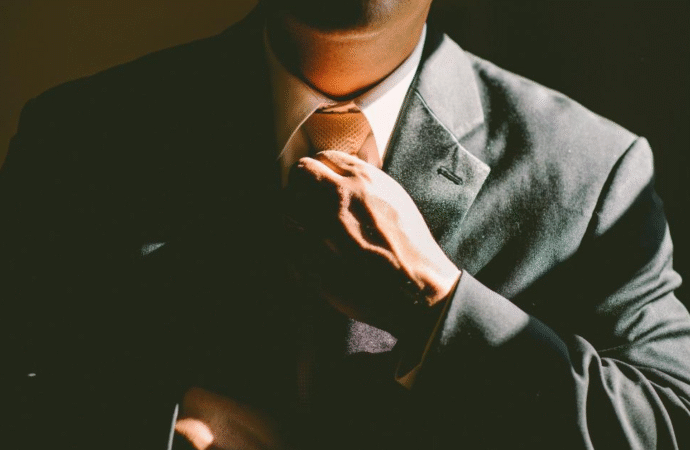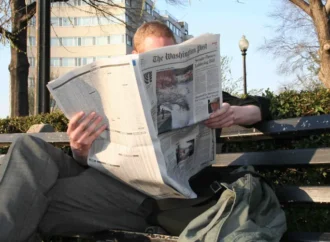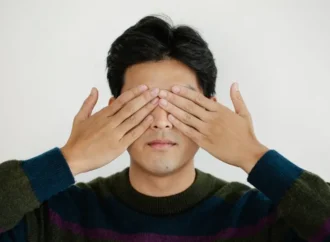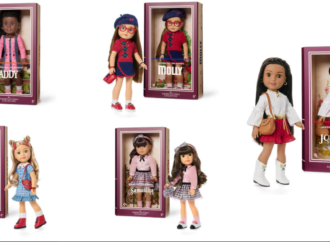Last week a young friend suggested lunch at a nearby café. I politely declined.
Seeing her surprise, I explained that I’d eaten there once and wasn’t impressed with the food. But it was more than the mediocre dish they’d served. It was the owner of the establishment, who doubles as manager and chef. “The way she dresses,” I said, “the gym shorts and t-shirt, don’t respect the customers or the help. Worst of all, it shows she doesn’t respect the food she cooks.”
To be blunt, this woman goes to work daily dressed like a slob in the very establishment she operates.
She’s little different than all those Americans who appear in public like they’d just rolled out of bed and thrown on clothes snatched from a hamper of dirty laundry. Stroll through Walmart or your local grocery store, and there they are pushing their shopping carts, unkempt, frowsy, rarely smiling, and with postures like used paper straws. Does this convey that these are citizens of the most powerful and prosperous republic on the face of the earth? I think not.
Here’s a personal example of how low our standards have fallen. I normally appear in public in a pair of khaki trousers, a shirt with a button-down collar, and a pair of black walking shoes. Nothing special here, but my grandkids think I’m always dressed up, and twice even their friends have told me so. Believe me: When Jeff Minick is deemed high fashion, then fashion is wearing a toe tag.
Moreover, the clothing we wear in public has effects beyond surface appearances. In “The Power of Dressing Up,” Leah Nalepa writes, “Beyond mere aesthetics, the way we dress profoundly impacts our mindset, behavior, and even how others perceive us.” She then notes with brief, straight-up explanations that dressing up rather than down boosts confidence, enhances professionalism, fosters discipline and routine, improves productivity, impacts perception, preserves a sense of occasion, and cultivates personal style.
Nalepa’s points have been tested formally. Researchers have found, for instance, that “enclothed cognition – the idea that what we wear can influence our mindset, behavior and even how we perceive ourselves” – is generally the case. Our clothing signals our self-perception to the world. Another study performed at Temple University found that dressing well not only increases productivity but “encourages employees to seek out social interactions with their colleagues.”
Several personal observations support these studies. Because I work at home as well as in a coffee shop or the library, I often spend the first couple hours of my writing day in a time-beaten sweatshirt and pajama bottoms, unshowered and unshaven. Over the past year or so, I’ve noticed that once I discard the nightwear, spiff up, and put on street clothes, my attitude toward my work changes. A reveille call sounds with this transformation, announcing that it’s time to get serious, that the real day has now begun.
In my favorite coffee shop, uniformed students from two nearby private Catholic schools often swing by for a drink or a treat. The girls’ plaid skirts and the boys’ jackets set them apart and tell others who they are. What those young people may not realize is that their uniforms also serve another purpose. As an administrator at Baltimore’s Calvert School told me decades ago, “We have a dress code because it tells students that school is serious business.”
This same coffee shop is popular with local homeschooling moms, many of whom daily wear dresses or skirts rather than sweats. They’re usually trailed by toddlers or pushing a stroller. What these women think of themselves I don’t know, but by their motherhood and their modest attire they exude a tender, exotic beauty. As Nalepa observed, they are impacting perception and cultivating a style, which in their case is the promotion of virtue and goodness.
Nalepa is on the mark. How we dress impacts our mindset and sheds a light on who we are.
Awhile back I wrote an article entitled, “How Did American Become a Nation of Slobs?” I concluded with the following remark:
Oscar Wilde once said, ‘You can never be overdressed or overeducated.’ No one would ever consider me overdressed – or overeducated, for that matter – but if I am now regarded as well dressed, a man representing haute couture, then I can only draw one conclusion.
We are a nation of slobs.
Maybe I’m growing soft as I age, but I see circumstances improving a bit. Those mothers in their dresses, those teens in their uniforms, the well-attired men and women gathered at a luncheon I attended recently – maybe these are signs that the age of sloth and sloven is coming to an end.
—
The republication of this article is made possible by The Fred & Rheta Skelton Center for Cultural Renewal.
Image Credit: Public Domain Pictures
15 comments















15 Comments
Nate Gift
October 15, 2025, 4:41 pmURGENT AND EFFECTIVE LOVE SPELL CASTER TO HELP YOU GET BACK YOUR EX LOVER VERY FAST WHATSAPP +2349047144277
My Name is Nate from Ireland, I want to say thank you to Doctor Masako for the good thing he has done for me, Though am not sure if this is the best forum to show my joy and happiness for what he has done for me but i can’t hide happiness and my Joy so i have to share it with people, my marriage got crashed about two years ago and i tried all i could within my power but to no avail. I saw a post and testimonial about the good things Doctor Masako has been doing so I decided to give it a try. though he is always a busy man but when he responded back to my email, he gave me 24hours for my marriage to be restored really just like he said my marriage was restored since then I am happy and i am living happily i am so grateful, Doctor Masako you can always email him here: [email protected] or WHATSAPP +2349047144277 Website: doctormasako2.wixsite.com/drmasakospelltemple
REPLYAngel@Nate Gift
October 16, 2025, 2:06 amI get paid over 220 Dollars per hour working from home with 2 kids at home. i never thought i’d be able to do it but my best friend earns over 15k a month doing this and she convinced me to try. it was all true and has totally changed my life. This is what I do, check it out by Visiting Following Website…
REPLY.
.
HERE—————⊃⫸ https://Www.Cash43.Com
RSLewis@Angel
October 16, 2025, 2:06 amGoogle is now paying $300 to $500 per hour for doing work online work from home. Last paycheck of me said that $20537 from this easy and simple job. Its amazing and earns are awesome. No boss, full time freedom and earnings are in front of you. This job is just awesome. Every person can makes income online with google easily….
REPLY.
More Details For Us→→ http://Www.Payathome9.Com
xajisih665@RSLewis
October 16, 2025, 2:06 amCrafting a home with intentionality – a place where others are not just provided shelter and food, but where they feel at rest and cared for – is no small act of love. And acts of love are never fruitless. The seeds of social change are sown first at home.
REPLYFlynnPerrier@xajisih665
October 16, 2025, 2:06 amIf everyone fulfilled their duty of state, big or small, taking care of their responsibilities to an exemplary degree, the world would be transformed in a flash, bringing a reign of peace. Well, we cannot control how others fulfill their responsibilities, nor can we very easily control how big or small our own responsibilities turn out to be. But we can control how well we fulfill them. And wider change will radiate out from our daily life based on how well we complete our duties, at work and especially at home, however insignificant they may seem. In reality, no duty is insignificant, especially where love is concerned.
REPLYAnonymous@FlynnPerrier
October 16, 2025, 2:07 amMother Teresa understood the mysterious connection between small acts of love and larger societal change. Often, we feel powerless as great clouds of evil spread tentacle-like over the world. We read headlines with dread, riling ourselves up over events over which we have no control. But we are never actually powerless. We can begin to change the world by reforming our own hearts and our own homes, by doing the good that comes to hand. The art of householding and homemaking lies within everyone’s grasp, with a much wider-reaching impact than we might at first imagine.
REPLYDelorisRRocco@Angel
October 16, 2025, 6:39 amI get paid more than $120 to $130 per hour for working online. I heard about this job 3 months ago and after joining this i have earned easily $15k from this without having online working skills. This is what I do……Www.Works6.Com
REPLYJames@Nate Gift
October 17, 2025, 1:19 pmGoogle pays $220 an hour online. My close relative had been unemployed for nine months, but last month, she received a $25k paycheck by working from home for 10 hours a day. Everyone should try this job now—just use this link.
COPY THIS →→→→ http://Www.Work99.Site
REPLYDana Roscoe
October 16, 2025, 2:39 amHome-based job that pays more than $2700-$4700+Dollar per week by doing simple tasks on a laptop or mobile device part-time. Last month, I earned $8400 Dollar from this job by working 4 hours per day online. Very simple jobs to do, and the earnings are insane. Everyone can now make more money online by joining the website listed below…..
Here is I started_______ https://Www.EarnApp1.Com
REPLYKali Briggs
October 16, 2025, 11:59 amI make $88 an hour to work part time on a laptop. I never thought it was possible but my closest friend easily made $27,000 in 3 weeks with this top offer and she delighted me to join. .Visit the following article for new information on how to access…….>>> https://www.Homeprofit1.site
REPLYEva Udova
October 16, 2025, 12:23 pmMy buddies go to the bar, I prefer to stay in. <a href="https://cobra-casino-online.com">Cobra Casino Online</a> is my spot. A few rounds on the roulette table and the stress of the day just fades away. It's a simple, reliable way to decompress on my own terms.
REPLYHarris Thomas
October 17, 2025, 2:39 am"In the crypto world, this is great news I want to share. Last year, I fell victim to a scam disguised as a safe investment option. I have invested in crypto trading platforms for about 10yrs thinking I was ensuring myself a retirement income, only to find that all my assets were either frozen, I believed my assets were secure — until I discovered that my BTC funds had been frozen and withdrawals were impossible. It was a devastating moment when I realized I had been scammed, and I thought my Bitcoin was gone forever, Everything changed when a close friend recommended the Capital Crypto Recover Service. Their professionalism, expertise, and dedication enabled me to recover my lost Bitcoin funds back — more than €560.000 DEM to my BTC wallet. What once felt impossible became a reality thanks to their support. If you have lost Bitcoin through scams, hacking, failed withdrawals, or similar challenges, don’t lose hope. I strongly recommend Capital Crypto Recover Service to anyone seeking a reliable and effective solution for recovering any wallet assets. They have a proven track record of successful reputation in recovering lost password assets for their clients and can help you navigate the process of recovering your funds. Don’t let scammers get away with your hard-earned money – contact Email: [email protected]
REPLYPhone CALL/Text Number: +1 (336) 390-6684 Contact: [email protected]
Website: https://recovercapital.wixsite.com/capital-crypto-rec-1